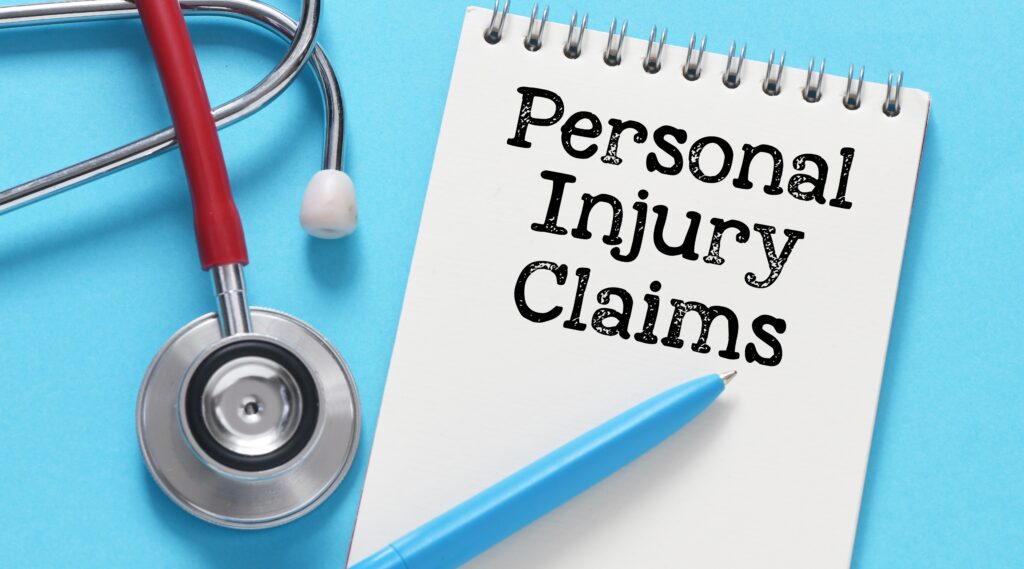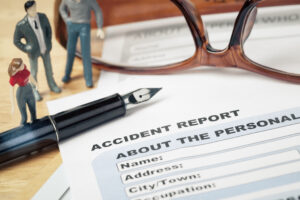
Imagine being hit by a car at a busy intersection. Suddenly, you have serious injuries and can’t work. Bills are piling up, and you can’t afford medical treatments. Financial concerns are common after serious accidents; the more severe your injuries, the more expenses you will face.
Fitting a personal injury claim against the at-fault party for your losses may be appropriate. But you may wonder if the case will settle or go to court. After all, you probably need money sooner than later; a court case can take a long time. This is a frequent question voiced by injury victims, so below is everything you need to know about personal injury claims and how a personal injury attorney in Manhattan Beach can help you navigate settlements.
What Is A Personal Injury Claim?
You can have a personal injury claim if someone’s mistake or negligence injures you. For example, were you hurt in a car accident when someone slammed into you at an intersection? Did you slip and fall on a wet floor in a grocery store? Did a tractor-trailer rear-end you at a stop sign? Did exposure to hazardous chemicals make you sick? In any of these cases, you can have a personal injury claim if someone’s negligence or act harmed you.
When successful, a personal injury claim can result in compensation for the plaintiff. You can receive compensation for your medical expenses, lost income, pain and suffering, and more. Your case can result in a settlement or court case, depending on the circumstances.
Most Personal Injury Claims Do Not Go To Court
After an accident caused by another party, you can file a personal injury claim against the at-fault person. The case can result in a settlement, but you may want to court if the insurance company doesn’t offer enough. It doesn’t; court cases can take months or years, so many injury victims prefer to settle.
Fortunately, most personal injury claims do not go to trial. Some estimates are that 90 to 95 percent of all personal injury claims settle without going to court. So, most personal injury claims end in settlement, not a court case. There are several reasons for this.
First, as the injury victim, you likely cannot work and face large medical bills. You also probably have trouble paying your regular bills. A settlement may provide less compensation than if the case went to trial and you received a favorable verdict. However, court cases are risky, and there’s a chance there’s nothing. The jury can rule against you. A personal injury settlement ensures you get something for your losses, and the money will come faster than waiting out a lengthy trial.
Second, the insurance company representing the at-fault person may be incentivized to settle the case instead of risking a trial. Suppose a driver rear-ends you at a traffic light, and you break your arm and leg. The rear driver was at fault. Instead of going to court and risking a jury awarding a large amount, the insurance company may prefer to offer a settlement to you. There’s a good chance you can receive more than what the settlement offers.
Third, going to trial involves considerable legal expenses and time requirements for both the plaintiff and defendant. There are large legal bills for taking any case to court, whether a personal injury claim, workers’ comp case, workers’ claim, or any other type of legal matter.
Part of the expense of going to court involves attorney fees. For instance, both sides in a personal injury lawsuit will have at least one attorney preparing paperwork, collecting evidence, and effectively presenting the case. Attorney fees can add up to hundreds of dollars per hour. However, many personal injury attorneys work on a contingency basis, meaning you don’t pay unless you don’t compensate you.
There are also court filing fees, court fees, and many other legal expenses associated with taking a case to trial. Individuals and companies may also lose money by going to court because they cannot focus on their business.
Last, taking a case to court can take months, even years. Getting a case on the court docket can take months, let alone how long the case takes to resolve.
The bottom line is that a personal injury claim, regardless of how it turns out, takes considerable time and money if it goes to court. There are benefits to settling a case for both sides instead of going to trial. That’s why most, but not all, personal injury claims settle instead of going to trial.
Factors In A Personal Injury Claim Going To Trial
Most personal injury claims, including car accidents, truck crashes, and slip and fall incidents, settle instead of going to court. But there are exceptions. Whether or not your claim is one of the exceptions depends on several factors:
Severity Of Injuries
Generally, the more serious the injuries, the harder it may be to reach a settlement that is fair to you. If you have several broken bones and a head injury from a car accident, there is a lot of money at stake. The insurance company may balk at paying a six or seven-figure settlement and opt to go to trial instead. Insurance companies have much to lose in more severe cases and may try to pay you less than you deserve. Your attorney may recommend taking the case to court when you have serious accident injuries.
Proof Of Fault
 Having powerful evidence that another party was at fault for the accident makes it more likely that their insurance company will settle the case. If a car accident is the fault of another driver, the jury can award you more money than you might receive in a settlement. The jury can even award you punitive damages when the at-fault party was especially reckless. Thus, the incentive for the insurance company to settle is greater.
Having powerful evidence that another party was at fault for the accident makes it more likely that their insurance company will settle the case. If a car accident is the fault of another driver, the jury can award you more money than you might receive in a settlement. The jury can even award you punitive damages when the at-fault party was especially reckless. Thus, the incentive for the insurance company to settle is greater.
Working with a personal injury attorney is critical if you intend to file a personal injury claim after an auto accident, slip and fall, or other type of accident. The attorney should be adept at both settlement negotiations and litigation in court. That way, you know your attorney has the best chance to obtain the compensation you deserve in a settlement or trial.
How A Personal Injury Attorney Helps With Your Settlement
Working with an attorney during personal injury settlement negotiations is extremely valuable. Without the right personal injury lawyer, you risk accepting much less than you deserve There are several things that your attorney will do for you, whether the claim ends in a settlement or jury verdict:
Advocate For Your Legal Rights
When you are in a personal injury dispute, the defendant will have a team of attorneys, especially if it’s an insurance company. The insurance company will have skilled attorneys working on personal injury claims daily. If you don’t have an experienced personal injury lawyer advocating for you, you will likely not get the compensation you deserve.
Your attorney’s perspective can pay considerable dividends in reaching a fair settlement. From the initial consultation about your case, your attorney will learn about the most critical parts of your case and will determine the best path to get the most compensation.
Negotiates A Settlement
You probably know the details of your accident and injuries, but there are many moving parts to consider when negotiating a fair settlement. Unless you’re an attorney, you’re unaware of the many factors that influence the compensation you receive for your losses.
For instance, do you understand how to calculate lost earnings while you recover and possibly later if you have a long-term disability? Do you know that in some states, if the auto insurance company rejects a fair offer for settlement and loses the case, the insurance company must pay for all damages, even if it is above policy limits? So, if you and your lawyer make a fair offer to settle under policy limits, the insurance company is strongly incentivized to accept.
If you were in a car accident and work with a personal injury lawyer who focuses on these cases, they will have specialized experience negotiating settlements with many insurance companies. Your attorney can even have a good working relationship with attorneys at your insurance company, which can be beneficial for a fair settlement.
Accurately Values Your Losses
If you broke your collarbone and arm in a car accident, it’s relatively easy to add up your past and current medical bills. But fully accounting for all of your losses is a complex process. Your serious injuries may require months of additional treatment and rehabilitation. You may miss more work during your recovery and cannot work the same job you did before.
You can also suffer considerable non-economic damages, including mental anguish and pain and suffering. These damages can be significant with serious injuries. It is difficult for a layperson to accurately estimate what pain and suffering are worth, but an attorney is highly skilled and experienced in this area.
May Threaten Litigation
 If settlement negotiations falter, you only have one choice: File a personal injury lawsuit. As noted earlier, lawsuits are time-consuming and costly, and most insurance companies want to avoid them in most situations.
If settlement negotiations falter, you only have one choice: File a personal injury lawsuit. As noted earlier, lawsuits are time-consuming and costly, and most insurance companies want to avoid them in most situations.
The insurance company will probably not be too concerned if you threaten a lawsuit alone. But if you have a skilled litigator with an impressive list of court settlements, threatening a lawsuit can encourage a recalcitrant insurance company to make a fair settlement offer.
Rely On Your Attorney’s Advice
You might be uncertain about settling your personal injury claim or going to trial. However, you should always rely on the experience of your personal injury attorney. If your lawyer recommends that you take a settlement from the defendant, it’s probably wise.
However, if your lawyer believes that the insurance company isn’t offering enough isn’t, they may recommend going to court. It may be difficult to wait for money in a court case, but your attorney may believe they have an ironclad case that can lead to a higher payout at trial.
Whether to go to trial or settle is your decision, but it’s important to consider your attorney’s experience in personal injury claims. Your attorney can provide valuable guidance based on their experience in similar cases, helping you weigh each option’s potential risks and benefits. While the final choice rests with you, consulting with your personal injury lawyer and considering their advice can be instrumental in achieving the best outcome for your case.
Personal Injury Attorneys Usually Work By Contingency Fee
Many personal injury victims worry about paying an expensive attorney. This can be especially difficult to contemplate when you can’t work and have can’t medical bills. In most cases, though, personal injury lawyers are compensated by a contingency fee.
A contingency fee is a compensation the lawyer receives at the end of your personal injury claim if it is successful. Depending on the law firm, your attorney might receive 25 to 40 percent of your settlement or verdict award. Even after the attorney takes their contingency fee, most plaintiffs still receive more money than they might have without a lawyer.
Most plaintiffs don’t pay out of pocket for their attorney’s services. Lawyers typically work on a contingency fee basis, meaning they only get paid if you win your case. So, if a lawyer did not review your case today, it’s likely because they believe there isn’t enough evidence to pursue it or because they cannot take on new clients.
Speak To A Personal Injury Lawyer Today

Mickey Fine, Personal Injury Lawyer
Were you injured in an accident recently by another party? You shouldn’t pay out for your injuries and other losses. An experienced personal injury attorney may secure fair compensation for your damages. Your attorney will attempt to make a fair settlement with the insurance company. But if settlement negotiations falter, your attorney will take the case to court and advocate for you in front of a jury.
Speak to a personal injury attorney today for more information during a free consultation. They can advise you on possible outcomes of your case and begin developing a strong case strategy.
